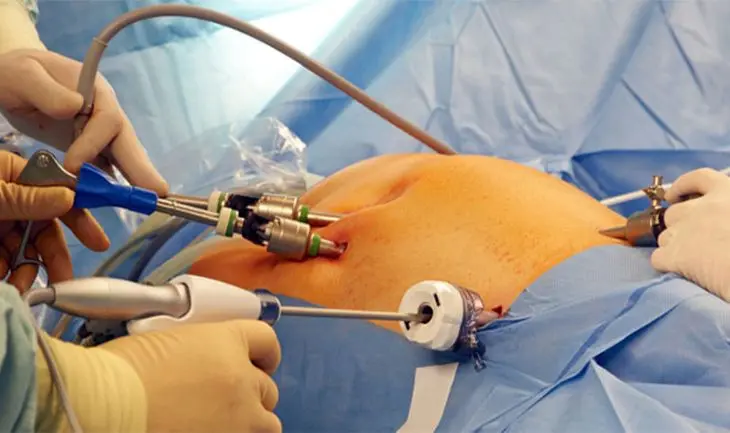Laparoscopy GI Surgery
Gastrointestinal Disorders and Laparoscopic Surgery
Gastrointestinal (GI) disorders are medical conditions that affect the digestive system. This system is responsible for breaking down food and extracting essential minerals, nutrients, and vitamins required by the body.
When diseases affect the organs of the digestive system, such as the stomach, small intestine, large intestine, rectum, and esophagus, gastrointestinal surgery may be required. The pancreas, gallbladder, and liver also fall under this category.
In the past, open surgery was the standard approach for these conditions. However, advancements in laparoscopic surgery have significantly changed surgical practices over the past few years.
Today, laparoscopic techniques are widely used in gastrointestinal surgeries, offering several advantages over traditional open procedures.

What is Laparoscopic Surgery?
Laparoscopic surgery is a minimally invasive surgical procedure involving small incisions of approximately 3-5 mm in the abdomen or near the navel. A thin tube with a tiny camera at its tip is inserted through these incisions. This camera provides real-time images, guiding the surgeon during the operation.
This method, also known as keyhole surgery, is often employed in gastrointestinal procedures to diagnose and treat issues within the digestive tract.
Preparing for Laparoscopic GI Surgery
Before the procedure, patients at Alpha One Hospital undergo a comprehensive evaluation:
- Pre-Surgical Consultation: The surgeon discusses the surgery, addresses concerns, and evaluates the patient’s medical history.
- Physical Examination: A routine examination along with blood tests is conducted. Additional tests like ECG, chest X-ray, or lung function tests may be required based on age and health condition.
- Bowel Preparation: Patients are advised to take a prescribed laxative the night before surgery to cleanse the intestines, reducing the risk of infections.
- Anesthesia Review: An anesthesiologist explains the type of anesthesia and post-surgery pain management methods.
Following these steps ensures patients are well-prepared for a smooth surgical experience.
Why Choose Laparoscopic GI Surgery at Alpha One Hospital?
Surgeons at Alpha One Hospital, Kharghar, Navi Mumbai, prefer laparoscopic surgery over open surgery for several reasons:
- Enhanced visualization of internal organs.
- Reduced risk of infections due to limited exposure.
- Lower chances of bleeding and hemorrhage.
- Smaller incisions result in less scarring and discomfort.
- Faster recovery and reduced hospital stay.
- Cost-effective, as some procedures can be performed on an outpatient basis.
Why Choose Laparoscopic GI Surgery at Alpha One Hospital?
- Laparoscopic Appendectomy: Removal of an inflamed appendix.
- Laparoscopic Hernia Repair: Treatment for inguinal, ventral, incisional, and umbilical hernias.
- Laparoscopic Cholecystectomy: Removal of the gallbladder due to gallstones or other complications.
- Laparoscopic Heller’s Myotomy: Surgical correction for Achalasia Cardia, a condition affecting food passage into the stomach.
- Laparoscopic Common Bile Duct Exploration: Removal of stones from the bile duct.
- Laparoscopic Fundoplication: Treatment for gastroesophageal reflux disease (GERD) by wrapping the stomach around the lower esophagus.
- Laparoscopic Splenectomy: Removal of the spleen to treat tumors, ruptures, or other spleen disorders.
- Laparoscopic Sleeve Gastrectomy: Bariatric surgery for weight loss, involving the removal of a portion of the stomach.
Final Thoughts
Laparoscopic GI surgery is a safe and effective solution for various digestive system disorders. At Alpha One Hospital, cutting-edge technology combined with experienced surgeons ensures optimal patient care and successful outcomes.
For those facing GI-related health concerns, laparoscopic surgery at Alpha One Hospital, Kharghar, offers a modern, minimally invasive approach that prioritizes patient comfort and recovery.
